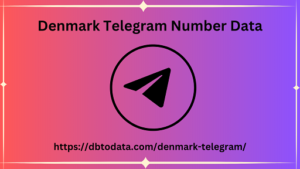Post by amirmukaddas on Mar 10, 2024 23:12:01 GMT -6
This article tries to do two things, position itself for the key in the title and offer a starting point to grasp an important aspect of how Google works. How Google.it works Google.it offers free visibility and traffic to content sources that add value to people's lives. It is a search engine that classifies and filters the information to be shown on its pages as answers to user queries or "queries". A query is anything a user decides to write in the search bar, even a single letter, even a keyword with a very high search volume, even the question "what is the truth about aliens?". Relevance and positioning I know three ways to make content relevant, therefore worthy of a good positioning on Google.it. The first is to provide absolutely the most comprehensive resource . Look, for example, at what a great job Nozzespeciali.it has done to gain a good positioning on the "how to organize a wedding" key. Observe how the homepage is organized and how it answers all possible questions by creating a list of internal links to the thematic in-depth pages. The same thing goes for StudioSamo.it which positioned itself on the first page for the dry key "SEO" by providing a similarly designed guide.
Jacopo calls them "explainers". The second way I know is to build a content that is extensive and detailed, but not generically oriented towards showing how something is done , but structured around an important event that took place on the topic. Vaccari 's mega resource comes to mind , whose title is How Google Works , in which Emanuele translated Collins' speech given at an SMX conference. Collins describes some important technical (and not only) truths about how the search engine works. To the translation, the brave Vaccari adds extensive and very interesting personal considerations. To read. The third way I know is to provide a completely different point Denmark Telegram Number Data of view, which beyond the technical data, tells users something true and makes them think. If you remember my article in which I talk about the truth as an SEO strategy , you already know very well that I am referring to that information that is perhaps a little uncomfortable but which nevertheless gives credibility to a professional. If all the websites of dental practices publish information on the fact that cleaning your teeth does not hurt and I write a post saying that it is painful , arguing well, users will attribute greater credibility to that dental practice and end up browsing more.

More in depth the pages, mention it in the forums and why not, give it some backlinks. The Internet is not the truth Today I would like to try to position myself for "how Google works" by explaining a simple truth to you, namely that Google rewards the truth in an internet that constantly lies. I am happy to share with you a post on the late Gianni Degli Antoni , written by Simone Righini. The professor's phrase that struck me most was "the internet is not the truth". It means two things, the first is that people publish on the internet what they deem appropriate without caring too much about whether there is truth or not, the second is that if many want to know how to cure tooth decay on their own , (which is impossible), EVERYONE they want to know the truth , which is not simply "it can't be done", but "find the courage to go to the dentist".
Jacopo calls them "explainers". The second way I know is to build a content that is extensive and detailed, but not generically oriented towards showing how something is done , but structured around an important event that took place on the topic. Vaccari 's mega resource comes to mind , whose title is How Google Works , in which Emanuele translated Collins' speech given at an SMX conference. Collins describes some important technical (and not only) truths about how the search engine works. To the translation, the brave Vaccari adds extensive and very interesting personal considerations. To read. The third way I know is to provide a completely different point Denmark Telegram Number Data of view, which beyond the technical data, tells users something true and makes them think. If you remember my article in which I talk about the truth as an SEO strategy , you already know very well that I am referring to that information that is perhaps a little uncomfortable but which nevertheless gives credibility to a professional. If all the websites of dental practices publish information on the fact that cleaning your teeth does not hurt and I write a post saying that it is painful , arguing well, users will attribute greater credibility to that dental practice and end up browsing more.

More in depth the pages, mention it in the forums and why not, give it some backlinks. The Internet is not the truth Today I would like to try to position myself for "how Google works" by explaining a simple truth to you, namely that Google rewards the truth in an internet that constantly lies. I am happy to share with you a post on the late Gianni Degli Antoni , written by Simone Righini. The professor's phrase that struck me most was "the internet is not the truth". It means two things, the first is that people publish on the internet what they deem appropriate without caring too much about whether there is truth or not, the second is that if many want to know how to cure tooth decay on their own , (which is impossible), EVERYONE they want to know the truth , which is not simply "it can't be done", but "find the courage to go to the dentist".
